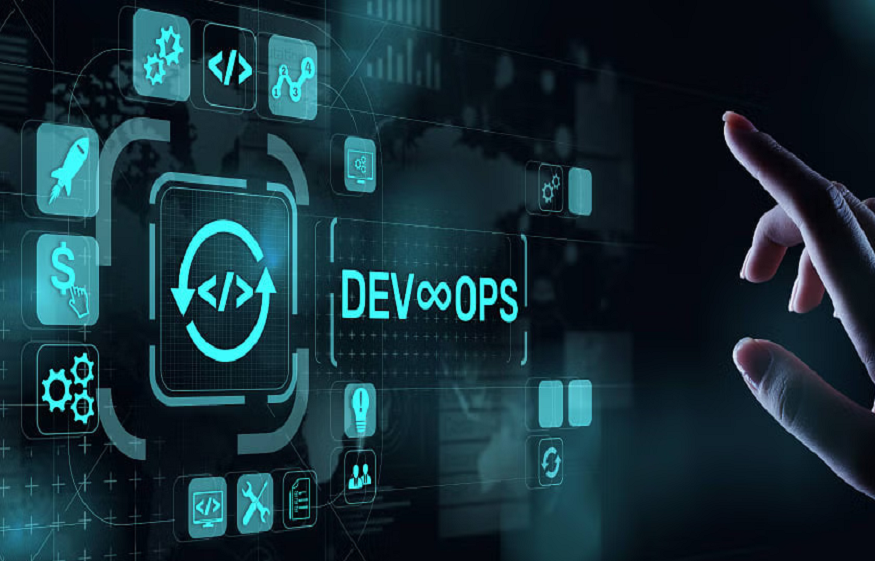
In today’s digital world, businesses are increasingly adopting cloud ad devOps. This helps streamline their multi-layer operations and bring products to the market on time. IT professionals and tech graduates often look for courses that have affordable Azure DevOps certification cost. This course will open their doors for positions such as cloud architect, security specialist, and DevOps engineer. This article discusses the key concepts of cloud computing & devOps, their significance, and how you can master them to build scalable solutions.
Understanding Cloud Computing
Cloud computing is the on-demand delivery of computing resources, including servers, storage, databases, networking, software, and analytics. This is regardless of your expertise as a developer, IT professional, system administrator, etc. The cloud computing and DevOps course enables these professionals to gain the necessary skills for lucrative opportunities. Rather than managing physical infrastructure, companies can utilize cloud services to reduce costs, improve agility, and scale functionalities efficiently.
Types of Cloud Computing
The infrastructure as a code provides virtualized computing resources over the internet. The instances include Amazon Web Services, Microsoft Azure, and Google Cloud Platform.
Platform as a service provides an architecture for developers to construct applications without worrying about the underlying infrastructure. Examples include Heroku and Google App Engine.
The software as a service delivers software applications over the internet. It eliminates the requirement for installation and maintenance. Examples of these are Dropbox, Salesforce, and Google Workspace.
Perks of Cloud and DevOps Technologies
- Scalability- It easily adjusts resources to meet demands.
- Cost Efficiency- The users can directly pay for the functions they will be using. It decreases hardware investments.
- Security- The cloud provider furnishes strong security measures and compliance standards.
- Flexibility and Accessibility- The access of the application i.e., cloud technologies, is not geography-bound. It can be used from anywhere with an internet connection.
Introduction To DevOps
This term is one word for development and operations. It focuses on collaboration, automation, and continuous delivery to enhance software development and deployment processes. It helps to bridge the gap between software development and IT operations. It facilitates faster and more reliable releases.
Core Components of DevOps
- Continuous Integration- The developers frequently merge code changes into a shared repository. It permits automated testing and bug detection.
- Continuous Delivery- It ensures that software is always in a deployable state. It reduces manual intervention.
- Infrastructure as Code: This helps automate a structure provisioning and management code. Some examples are Tensible, Ansible, and CloudFormation.
- Monitoring and Logging- Tools such as Prometheus, ELK stack, and Grafana help track performance and troubleshoot issues.
- Containerization and Orchestration- Technologies like Docker and Kubernetes enable efficient application deployment and scaling.
Building Scalable And Secure Systems
The affordable Azure DevOps certification cost has made it easier to upskill with flexibility. These courses are generally designed for learners to get familiar with the devops and other cloud tools & technologies. It talks about diverse strategies that can be used to build the same.
- Implementing Cloud Native Architectures: These leverage microservices, serverless computing, and containerization to optimize performance and scalability. Microservices help break services into smaller fragments and independent services, increasing scalability and fault isolation. Serverless computing assists in running code without merging and managing servers. Containers and Kubernetes enable deploying applications in portable, lightweight ways that ensure consistency across platforms.
- Automating Deployment and Scaling—DevOps tools like Jenkins, GitLab CI/CD, etc. automate the deployment pipeline, ensuring faster releases and fewer errors. Plus, cloud platforms’ auto-scaling capabilities dynamically adjust resources based on requirements.
- Improving Security with DevSecOps- The security feature should be integrated into every stage of the development process. The IAM (Identity and Access Management) restricts using least privilege principles. Automated security scanning uses tools like Snyk, SonarQube, etc. to detect vulnerabilities. Data encryption protects sensitive information using encryption at rest and in transit.
- Monitoring and Incident Response- Proactive monitoring helps detect and resolve issues before they impact users. The observatory tools Datadog, New Relic, etc. for real-time tracking. The automated alerts help in setting up notifications for unusual system behavior. The disaster recovery plans regularly back up data and establish failover mechanisms.
How To Gain Expertise in Cloud Computing and DevOps?
- Learn cloud platforms
- Get Certified
- Gain hands-on experience
- Join DevOps and cloud communities
- Practice with open-source tools
Conclusion
The cloud computing and DevOps course produces skilled individuals who are capable of developing efficient and scalable solutions. These technologies do not need physical infrastructure; they construct cloud services, where data is stored and managed. You can advance your career by mastering cloud platforms, automation tools, and security best practices. It also contributes to the ever-growing tech industry. If you want to get promoted to senior tech roles in the industry, then hands-on-to-cloud computation is the only way out.



